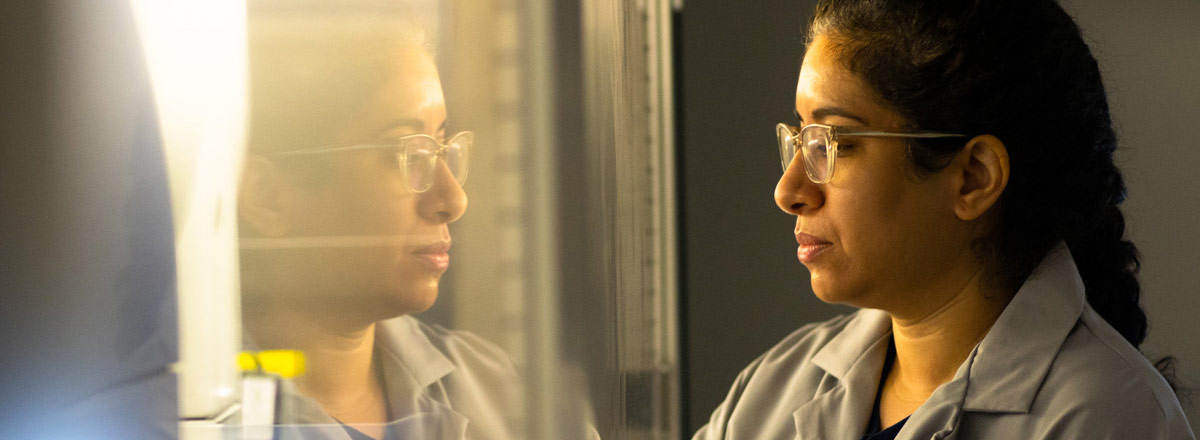About the symposium
The Rising Stars Symposium will showcase the biomedical research of exceptional scholars from across the country who have been selected to give oral presentations at Sanford Burnham Prebys based on their academic achievements, research scholarship and general fit with Sanford Burnham Prebys laboratories.
This event is hosted by the Diversity, Equity and Inclusion (DEI) Recruiting Committee. We strive to create an inclusive workforce through hiring practices and recruitment and retention strategies that are equitable and result in increased representation.
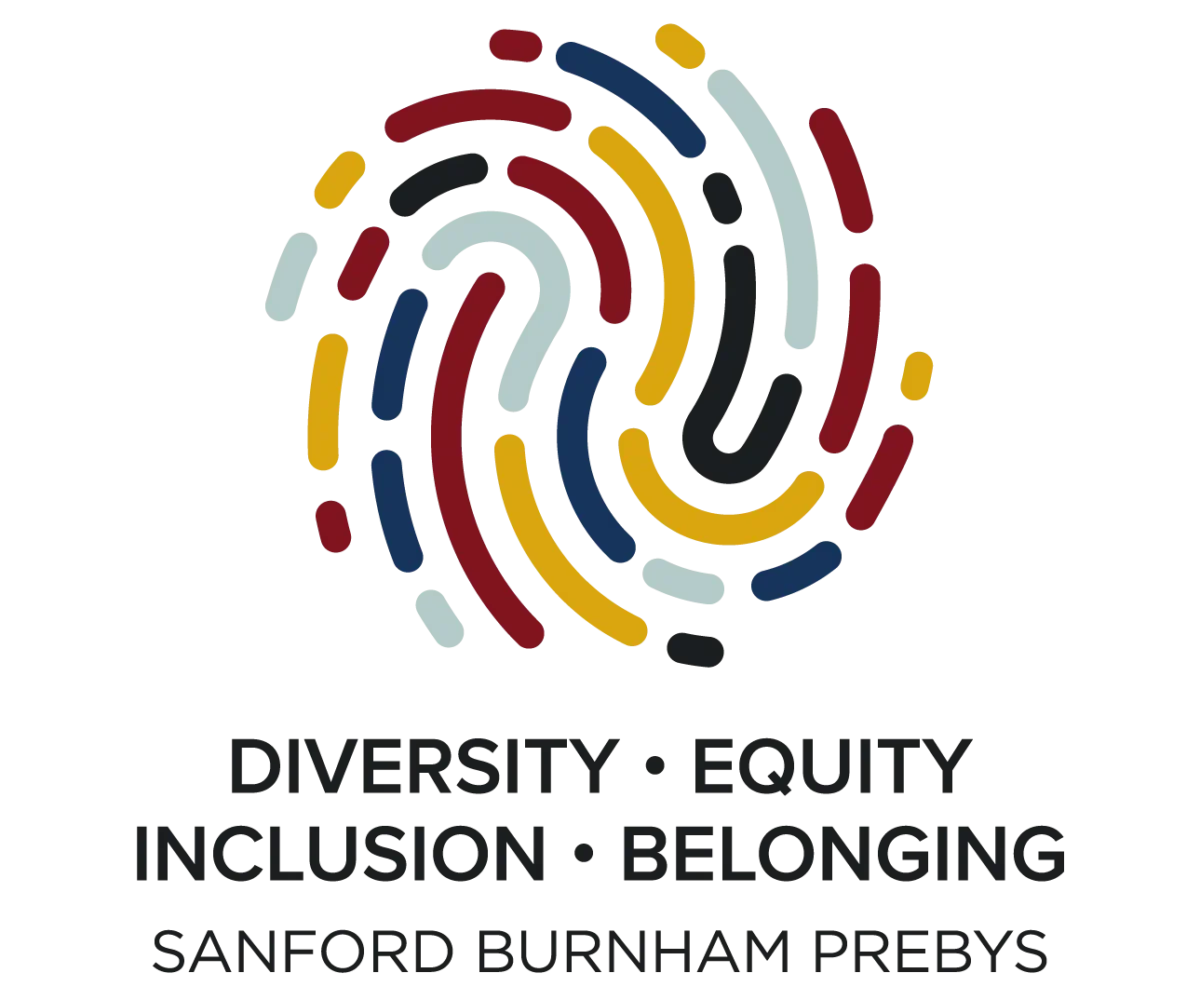
Schedule
| 9 – 9:10 am | Welcoming Remarks Kristiina Vuori, MD, PhD President Pauline and Stanley Foster Presidential Chair Professor, NCI-Designated Cancer Center |
|---|---|
| 9:10 – 10 am | Keynote Address Svasti Haricharan, PhD Assistant Professor, NCI-Designated Cancer Center |
| 10 – 10:10 am | Break |
| 10:10 – 11:10 am | Session 1 Oral Presentations 10:10 Joel Encarnacion-Rosado 10:30 Myron Keith Gibert, Jr. 10:50 Khairunnisa Semesta |
| 11:10 – 11:20 am | Break |
| 11:20 am – 12:20 pm | Session 2 Oral Presentations 11:20 Chun-Wei Chen 11:40 Tyler DeWitt 12:00 Niyati Borkar |
| 12:20 – 1:10 pm | Lunch Open to all attendees |
| 1:10 – 2:10 pm | Session 3 Oral Presentations 1:10 Mohamed El-Brolosy, PhD 1:30 Gabriel Luna-Arvizu 1:50 Sedelia Dominguez |
| 2:10 – 2:20 pm | Break |
| 2:20 – 3:20 pm | Session 4 Oral Presentations 2:20 Jessica Proulx 2:40 Zachary Jackson 3:00 Gabriel Ascui |
| 3:20 – 3:30 pm | Closing Remarks Angelica Rocha, PhD Diversity Officer Asst. Dir. Institutional Research & Academic Planning |
| 3:30 – 5 pm | Reception and Poster Presentations |
Speakers
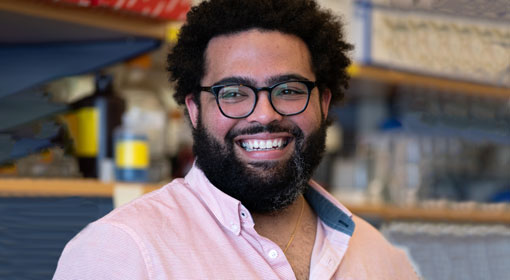
Joel Encarnacion-Rosado
PhD candidate
“Harnessing metabolic dependencies in pancreatic cancers”
Joel Encarnacion-Rosado is a PhD candidate at the New York University Grossman School of Medicine, conducting his research in Dr. Alec Kimmelman’s lab. His research focuses on the metabolism of pancreatic ductal adenocarcinoma (PDAC), a highly aggressive type of cancer. Specifically, his research aims to identify and target metabolic vulnerabilities in PDAC, which could help identify new therapeutic approaches for the disease.
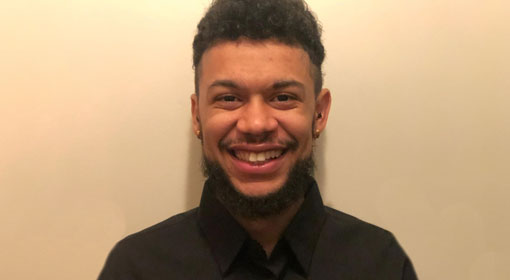
Myron Keith Gibert, Jr.
PhD candidate
“Transcribed ultraconserved regions (T-UCRs) in gliomas”
Myron Keith Gibert, Jr. is a PhD candidate at the University of Virginia conducting his research in Dr. Roger Abounader’s lab. His research focuses on a relatively understudied class of ‘ultraconserved’ non-coding RNA and their potential role in glioblastoma (GBM), the deadliest and most common brain tumor. Better understanding the function of these RNAs, which remains uninvestigated in GBM, could pave the way for new therapeutic avenues for these tumors.
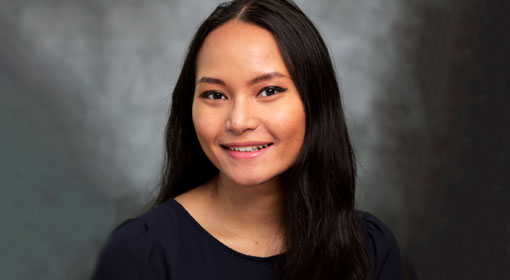
Khairunnisa Semesta
PhD candidate
“A high-throughput discovery and characterization of novel GPCR/cAMP pathway regulators”
Khairunnisa Semesta is a PhD candidate at Duke University in Dr. Nikoleta Tsvetanova’s lab. Her research focuses on the molecular basis of neuropsychiatric disorders, specifically the factors that govern the activity of G-protein coupled receptors (GPCRs), which are essential to signaling between brain cells. Aberrant GPCRs are implicated in many complex psychiatric disorders, and better understanding their function can help identify druggable targets to treat these illnesses.
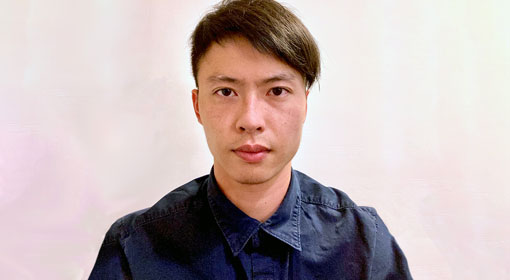
Chun-Wei Chen
PhD candidate
“Srcap mutation promotes lymphoid bias in therapy-related clonal hematopoiesis”
Chun-Wei Chen is a PhD candidate at Baylor College of Medicine in Dr. Margaret A. Goodell’s lab. His research focuses on exploring the effect of DNA damage and epigenetic modifications on clonal hematopoiesis, a process in which mutated stem cells in the blood multiply and take over the population. Clonal hematopoiesis is an emerging risk factor for heart disease and blood malignancies, and it also occurs as an adverse effect of cancer therapies. Understanding how DNA damage affects this process could help doctors mitigate or prevent it.
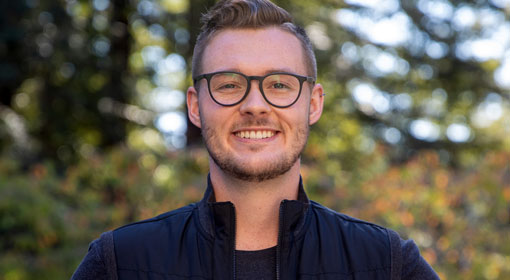
Jerry (Tyler) DeWitt
PhD candidate
“Oncogenic forms of Ras influence cell size control in budding yeast and mammalian 3T3 cells”
Tyler DeWitt is a PhD candidate at University of California, Santa Cruz conducting his research in Dr. Doug Kellogg’s lab. His research focuses on the effect of cellular signaling on cell size and growth. Defects in cell growth and size control are a nearly universal feature of cancer cells and understanding how these defects occur can help researchers better understand cancer pathology and develop new therapeutics.
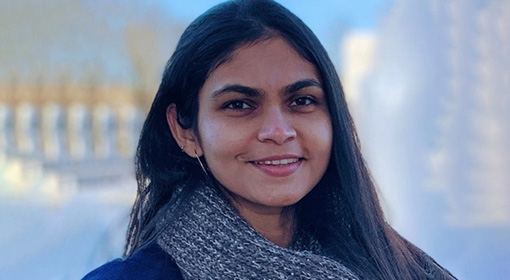
Niyati Borkar
PhD candidate
“Kisspeptin expression and function in the human airway smooth muscle”
Niyati Borkar is a PhD candidate at North Dakota State University, completing her research in Dr. Sathish Venkatachalem’s lab. Her work focuses on the effect of estrogen and testosterone, as well as proteins upstream of these hormones such as kisspeptin, on the pathology of asthma. Asthma is more severe in women than men, and understanding why could help improve asthma treatment.
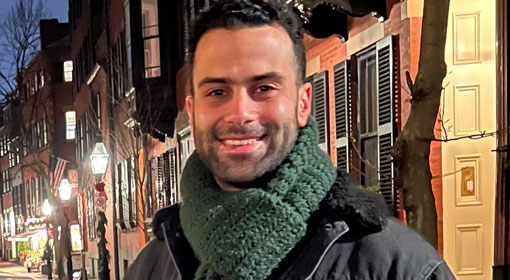
Mohamed El-Brolosy, PhD
Junior Fellow
“A novel role for mutant mRNA degradation in triggering transcriptional adaptation to mutations”
Mohamed El-Brolosy is a Junior Fellow of the Harvard Society of Fellows, completing his research in Dr. Jonathan Weissman’s lab at the Whitehead Institute for Biomedical Research. His research focuses on transcriptional adaptation, a newly identified mechanism of genetic robustness in which a mutated gene can modulate the expression of related genes through mutant mRNA decay. Revealing how transcriptional adaptation works has implications for our understanding of disease-causing mutations and may hold a therapeutic potential for several genetic diseases.
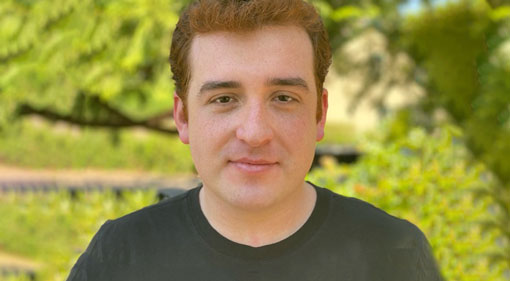
Gabriel Luna-Arvizu
PhD candidate
“How cells communicate through fluid flow signals”
Gabriel Luna-Arvizu is a PhD candidate at the University of Oregon conducting his research in Dr. Daniel T. Grimes’ lab. His research focuses on cell communication through fluid flow signals, a process that helps cells sense and respond to physiological changes. Because fluid flows are critical for organ development and contribute to host-microbe interactions and cancer metastasis, better understanding the complex dynamics of fluid flow sensation and transduction can provide insight into both healthy human biology and the progression of diseases.
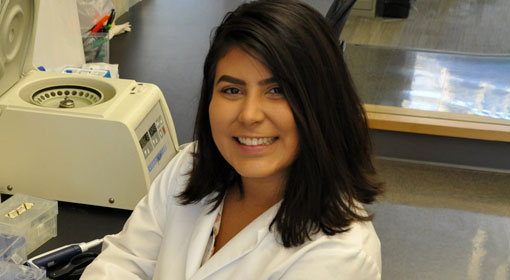
Sedelia Dominguez
PhD candidate
“Understanding the relationship between bacterial pathogens and host metabolism”
Sedelia Dominguez is a PhD candidate at Washington State University conducting her research in Dr. Tom Kawula’s lab. Her research focuses on how bacterial pathogens metabolize nutrients during infection. Intracellular bacteria cause a range of human infections and diseases. Understanding their metabolism or how they hijack metabolic signaling can provide insight into how these pathogens are able to bypass the body’s defenses.
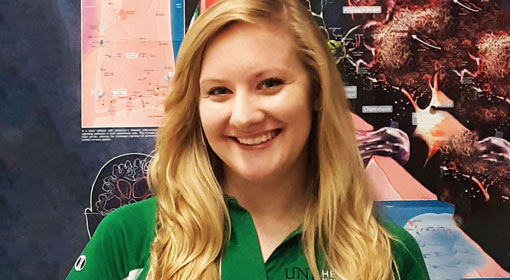
Jessica Proulx
PhD candidate
“Inositol-requiring enzyme 1 alpha (IRE1α) at the int-ER-section of astrocyte dysfunction”
Jessica Proulx is a PhD candidate at the University of North Texas Health Science Center conducting her research in Dr. Kathleen Borgmann’s lab. Her research focuses on how HIV-1 infection and methamphetamine exposure affect glial cells of the central nervous system. Her project seeks to evaluate how HIV and methamphetamine regulate cellular stress responses in key neuro-supportive brain cells, which will help identify new therapeutic targets to treat or prevent neurological issues associated with HIV and/or substance use.
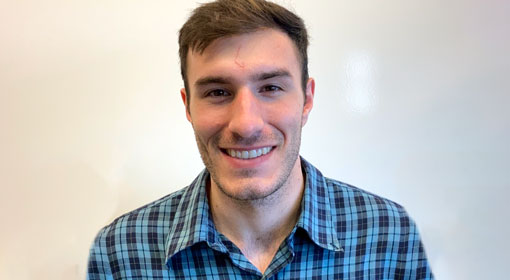
Zachary Jackson
PhD candidate
“TIGIT as a marker of CD19 CAR-T cell dysfunction in patients with non-Hodgkin’s lymphoma”
Zachary Jackson is a PhD candidate at Case Western Reserve University conducting his research in Dr. David Wald’s lab. His research focuses on identifying biomarkers to reveal how cancer responds to CAR-T cell therapy, a type of immune cell therapy that works well against certain cancers, but often fails for unknown reasons. Better understanding how and why CAR-T cell therapy fails can help improve treatment strategies and outcomes for patients receiving this treatment.
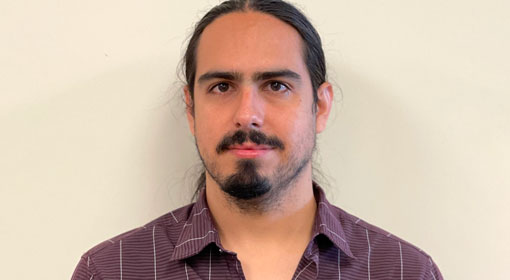
Gabriel Ascui
PhD candidate
“Mucosal-associated invariant T cells transcriptomic landscape before and after lung bacterial infections”
Gabriel Ascui is a PhD candidate at University of California, San Diego and is conducting his research at the La Jolla Institute for Immunology in Dr. Mitchell Kronenberg’s lab. His research focuses on lung immune responses against bacterial pathogens, exploring how innate T cells could be used as a therapy to confer long-term protection against infections in the lung without risk of being rejected by the body.

